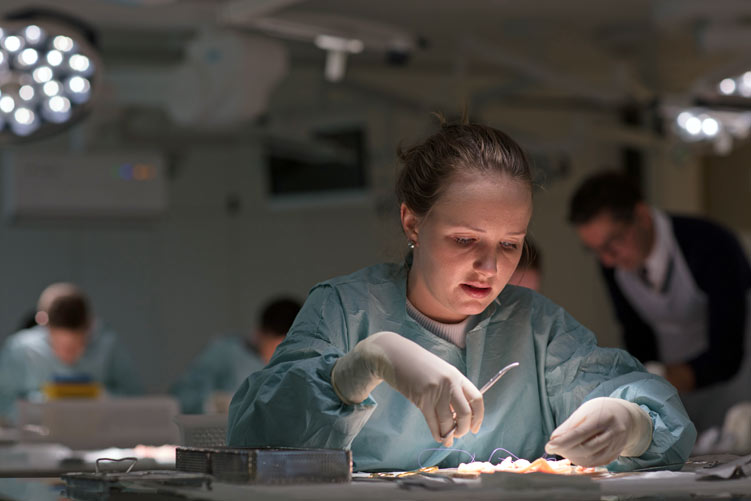Research
RCSI SIM is dedicated to advancing simulation-based learning in healthcare and other areas through research and education. The scope of our research encompasses the full continuum of higher education. The team investigate complex and challenging clinical scenarios, to identify and improve best practice, and to inform the development of evidence-based interventions. The research is also used to inform the design and implementation of impactful courses using simulation strategies, specifically simulation participant methodology, to optimally train professionals.
Collaborations are developed internally at RCSI and externally with local, national and international partners. We strive to help develop and influence the evolving discipline of simulation science.
For inquiries regarding research and collaborations, please email Research_RCSISIM@rcsi.ie.
Current research projects
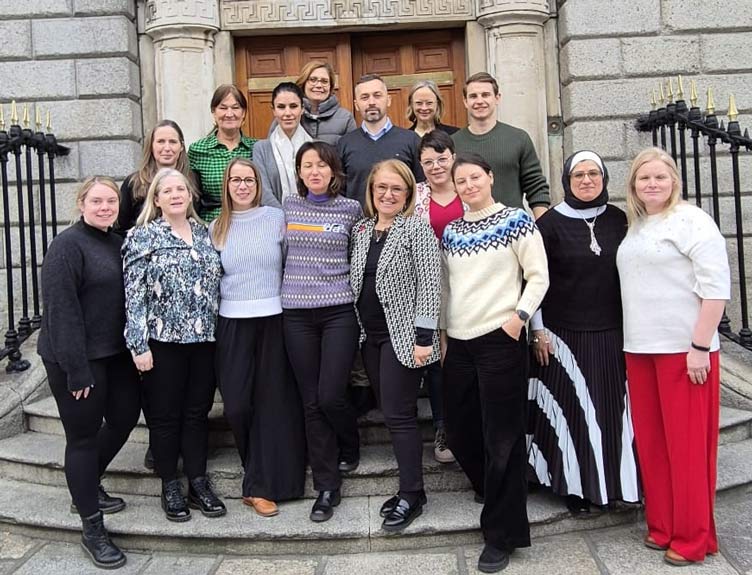
Project title: Training Health Professional Educators to Teach Interprofessional Teams Using Simulation-Based Immersive Training (SPIRIT)
Funding agency: Erasmus+ Programme Key Action 220, Higher Education Authority (HEA)
Partners: Humanitas University, Medical University of Wrocław, Medical University of Vienna
Contact: marwaaly@rcsi.ie
Abstract: The aim of this project is to create standardised European simulation training for health professional educators, focusing on interprofessional team training and education. One of the outcomes of this project is the provision of an interactive manual, featuring a recommended teaching format and aligned assessment tools.
Core modules will be developed for essential training topics such as psychological safety, simulation design, and feedback, along with elective modules that participants can select to meet their individual training needs. These resources aim to standardise and enhance simulation-based education across Europe.
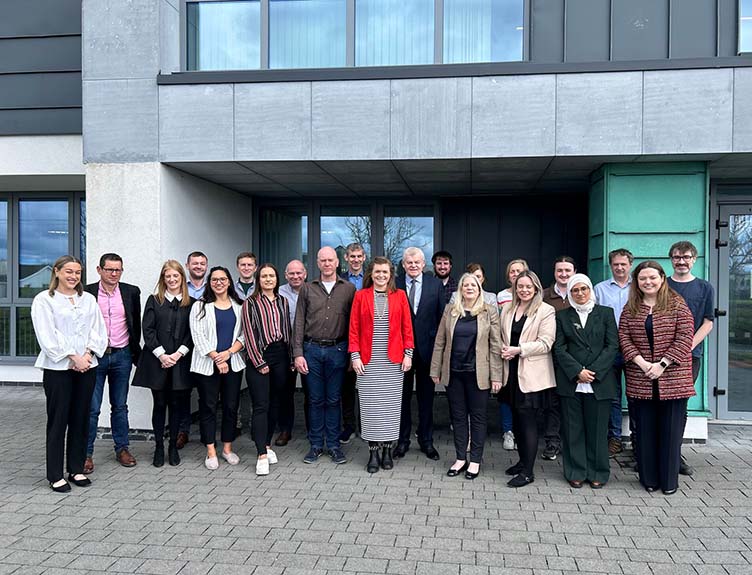
Project title: Solascope – the world's first sterile, sustainable, panoramic endoscope – designed for and enabling the circular economy for medical devices
Funding agency: Enterprise Ireland, Disruptive Technologies Innovation Fund (DTIF)
Partners: Tympany Medical Ltd (project lead), Invermed Teoranta, the National College of Art & Design (NCAD).
Contact: SimDtifSola@rcsi.ie
Abstract: This project is a collaboration between Tympany (project lead), RCSI, InverMed, and NCAD to produce the world's first sterile, sustainable, panoramic endoscope which will deliver better healthcare outcomes in a sustainable manner. RCSI SIM's core focus is to elicit system requirements, to ensure that the technology enhancements of sustainable design support the accurate identification, diagnosis and quantification of meaningful pathology.
RCSI SIM will perform device testing and validation that generates and integrates high-quality objective performance feedback through efficient, consistent and scalable methods. Comprehensive and efficient prototype testing solutions are critical to ensure the successful development and deployment of medical device equipment. Yet an excessive focus on compliance rather than quality can divert resources and attention toward meeting regulatory compliance requirements, rather than adopting best quality practices.
One of the main outcomes of this project is establishing a platform for design verification and prototype testing of medical devices in simulated models.

Project title: Developing and Applying a Taxonomy of Communication Behaviours and Contextual Factors in Robotic Surgery
Funding agency: HORIZON-MSCA
Researcher: Dr Kyi Phyu Nyein
Abstract: Robotic surgery is being rapidly and widely incorporated into surgical practice, with the current focus of training on equipment, mechanics, and technical skills.
The operating theatre setup for robotic surgery is inherently different from the traditional arrangement, with the operating surgeon at a console that is remote from the rest of the surgical team and patient. The team faces significant challenges due to this physical separation and the visual barrier imposed by the robotic operating equipment.
As a result, leadership and team communication are dynamically altered. Nonverbal communication and cues need to be replaced by explicit and descriptive communication. The overarching aim of this project is to examine what comprises effective communication by robotic surgical teams.
The outcomes from this research will serve as training materials for simulation training focusing on communication for robotic surgical teams, and will contribute to the continuous improvement of modern surgery and the quality and safety of patient care.
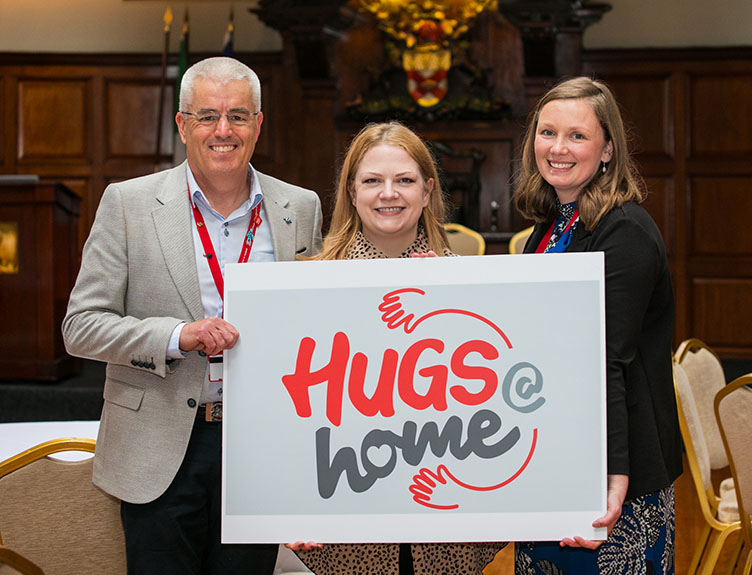
Project title: HUGS@Home
Funding agency: Movember
Project website: www.hugsathome.eu
PI: Michelle O’Toole
Abstract: First responders deal with stressful events as part of their daily activities. Public service in times of extreme need is one key purpose of their professions.
Extreme situations can be distressing and difficult for individuals to process. Early intervention approaches reduce symptoms of post-traumatic stress, but access to support services remains limited due to lack of resources or the stigma associated with seeking help. Social support has been proven to help combat the after-effects of these stressful events and first responders often lean on their colleagues or their families for this support.
This study aims to explore if family members can be trained to 1) recognise the signs and symptoms of stress in their first responder, and 2) provide a basic helpful intervention to manage that crisis. This project is linking family members to the relevant organisational supports for further assistance, if required.
Previous research projects
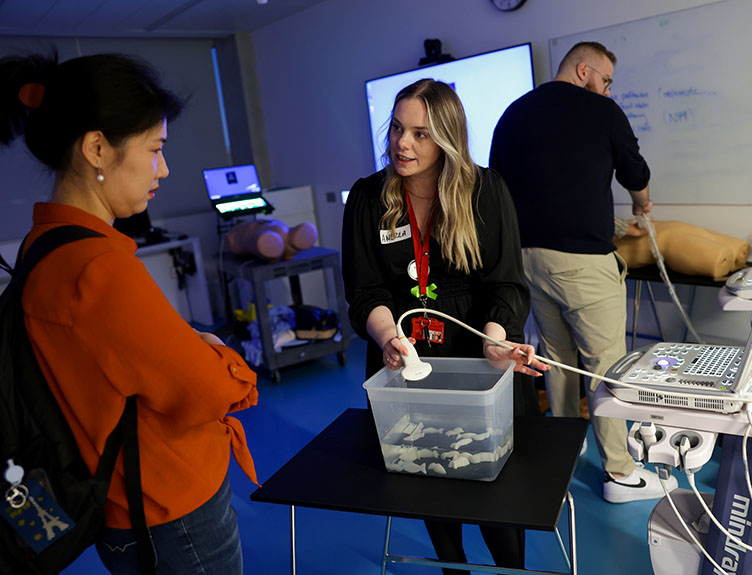
Project title: Development of a simulation-based training curriculum for ultrasound-guided interventional radiology procedures using the Four Component Instructional Design (4C/ID) framework
Funding agency: Irish Research Council
PI: Dr Andrea Doyle
Abstract: Interventional radiology (IR) offers a minimally invasive alternative to conventional surgery, reducing post-operative complications, pain, and costs while improving patient convenience.
These benefits, however, depend on a highly trained IR workforce. Effective IR procedures require interventional radiologists to skillfully interpret diagnostic images and manipulate surgical tools through small incisions, especially in ultrasound-guided procedures. Current IR training follows an apprenticeship model, which is resource-intensive and poses risks to patients.
Simulation-based medical education (SBME) is an effective method to enhance IR training, allowing trainees to practise their skills in a safe, controlled environment. This project aims to develop a simulation-based training curriculum for ultrasound-guided IR procedures, by creating anatomically accurate, interactive, and progressively challenging simulation models, informed by IR experts to improve trainee competency and ensure patient safety.
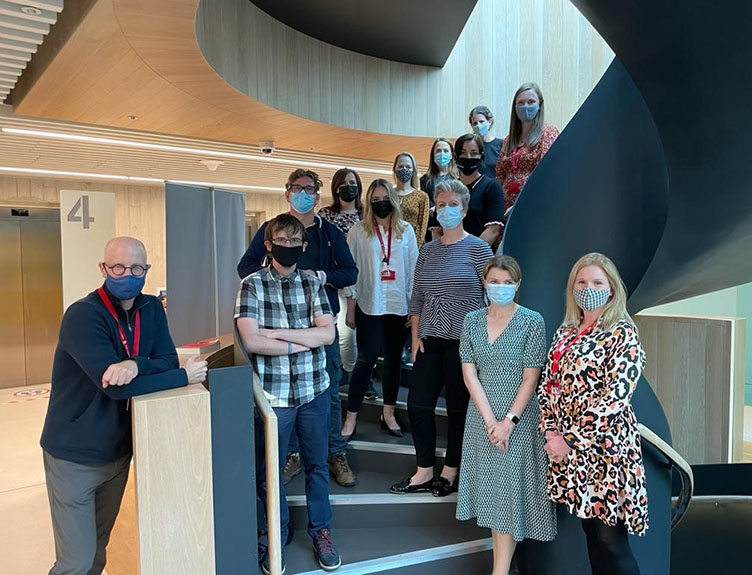
Project title: Crossing boundaries in the chain of child safeguarding: an interprofessional simulation curriculum
Funding agency: Higher Education Authority
PI: Professor Walter Eppich
Abstract: This study explores how professionals work together to achieve common goals across professional boundaries. It examines how participants learn from those in the same role (e.g. nurse-nurse) and from interacting with others in different professions (e.g. nurse-social worker).
This interprofessional learning helps people assume various professional roles within their teams and make their unique contributions in coordination with those from other professions. Interprofessional learning is studied in the context of child safeguarding, since many professionals across different sectors contribute to this vital work. To this end, a simulation-based curriculum is designed to promote both collaboration and communication among the professionals responsible for child safeguarding.
Although simulation-based education (imitation of real-world scenarios) helps train these essential skills, current approaches typically involve only one professional group at a time. Implemented through iterative design and evaluation (multiple cycles) of an interprofessional child protection course, this study strives to advance the science of child safeguarding education and enhance our understanding of interprofessional collaborative practice.
Themes and collaboration
While we engage in a broad range of research topics, we concentrate our efforts on the following thematic areas:
- Simulation curriculum design
- Simulator development and material science
- Simulated participant methodology
- Analysing and interpreting the data generated from simulations
- Clinical decision-making, communication and teamwork
- Utility of assessment tools
- Understanding and improving health professions education and surgical training.
Recent international research collaboration partners include:
- Maastricht University
- University of Zurich
- King’s College London
- Harvard Center for Medical Simulation
- PAEDSIM e.V.
- Monash University
- University of Toronto
